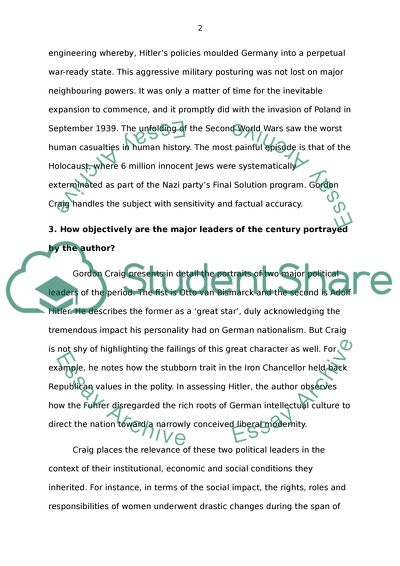Germany 1866-1945 by Gordon A. Craig Book Analysis Essay. Retrieved from https://studentshare.org/history/1656741-germany-1866-1945-by-gordon-a-craig-book-analysis
Germany 1866-1945 by Gordon A. Craig Book Analysis Essay. https://studentshare.org/history/1656741-germany-1866-1945-by-gordon-a-craig-book-analysis.


